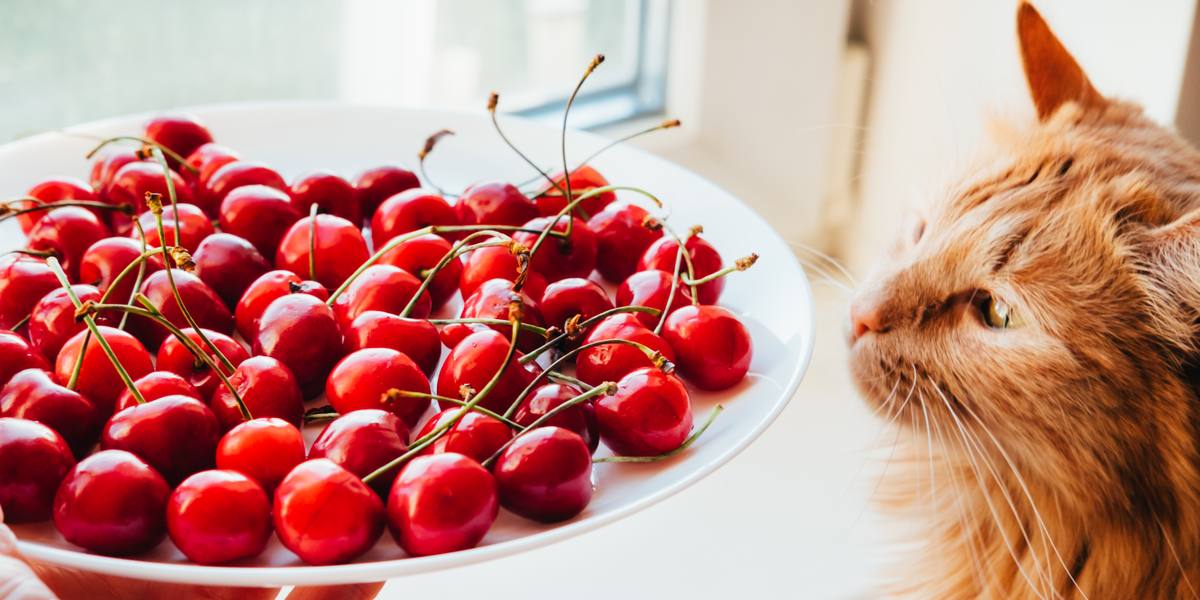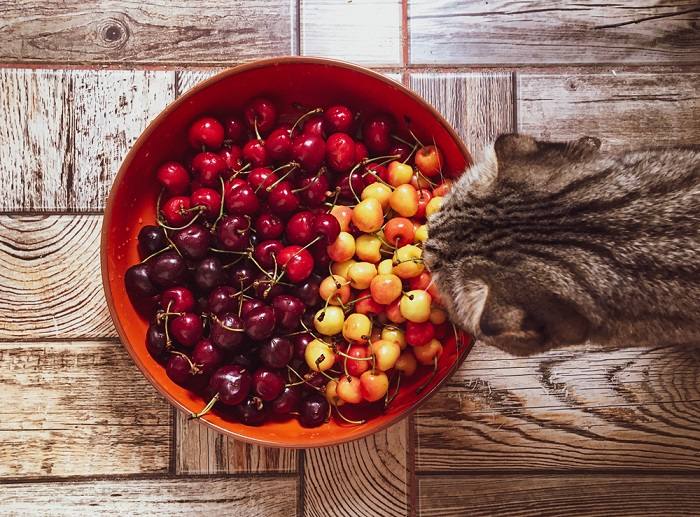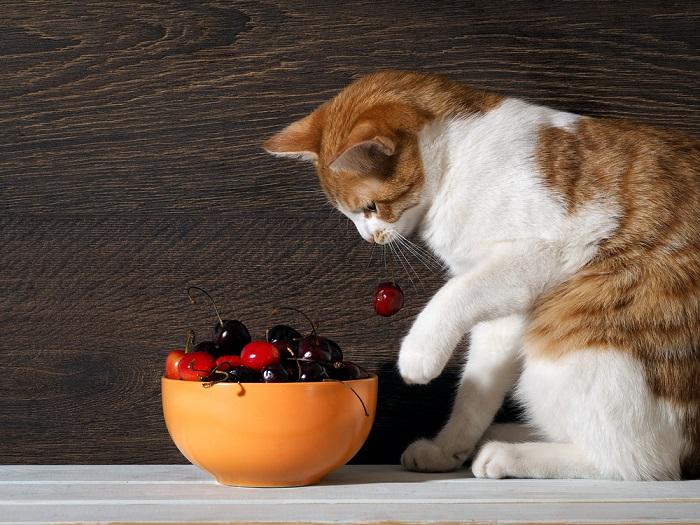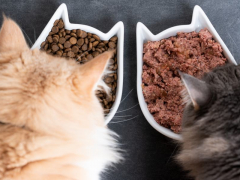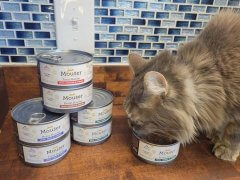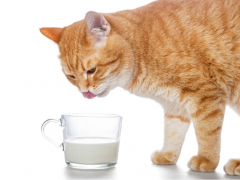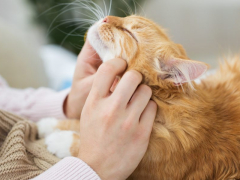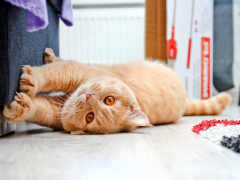Cherries are a surprisingly healthy treat that many humans enjoy. Whether sweet cherries are your favorite snack or you’re more partial to tart cherries, there are many different varieties, including black cherries, bing cherries, and rainier cherries.
But what about our cats?
Can they enjoy cherries every once in a while? Sadly, the short answer to whether cats can eat cherries is no, they can’t.
Although if the cherry is ripe, the flesh of the cherry is unlikely to cause a problem, there are serious risks associated with the seeds, stalks, and other parts of the cherry plant. Therefore, it’s best not to take any chances.
Cherries are a superfood in the world of human nutrition. However, despite their potential health benefits, they pose a life-threatening risk to our furry family members. Therefore, it’s best to keep your cat away from any cherries or cherry trees in your home and garden.Quick Overview: Can Cats Eat Cherries
Toxic: Yes
Commonly Allergenic: No
Species Appropriate: No
How Often to Feed: Never
How Much to Feed: None
Summary of Content
Also Read: Which Fruits Can Cats Eat?
Are Cherries Good for Cats?
Vitamin C is also contained in cherries and helps keep your cat’s skin, bones, and blood vessels healthy.
When it comes to human nutrition, cherries are considered a superfood. This is because they are high in vitamins and antioxidants. They’re claimed to help you sleep better and lose weight, and may decrease inflammation.
Another nutritional benefit of cherries for cats is the high fiber content, which will help keep your kitty’s digestive system healthy and their stools regular. Potassium is also needed throughout your cat’s body, including in their muscles and kidneys.
It has roles in regulating blood pressure and maintaining hydration. Vitamin C is also contained in cherries and helps keep your cat’s skin, bones, and blood vessels healthy.
How Many Cherries Can a Cat Eat?
Because of the serious risks of cherry poisoning due to the cyanide in parts of the cherry plant, it’s best not to offer your cat cherries at all.
If your cat has eaten unripe cherries, cherries with seeds or stalks, or any other part of a cherry plant, you should speak to your veterinarian right away.
If your cat has accidentally eaten a seedless, ripe cherry, it’s unlikely to be a problem. However, you should still monitor them closely and contact a vet if they seem unwell.
Also Read: 10 Toxic & Poisonous Plants For Cats
How Often Can a Cat Eat Cherries?
Even a single cherry as a one-off could cause your cat serious harm if it is underripe, has a stalk, or contains a seed.
These parts of the cherry plant contain cyanide, which is poisonous and sometimes fatal to cats. So, to avoid this risk, you should never offer them cherries, and you should ensure that any cherries in your home or garden are out of reach. Dried cherries are unlikely to contain seeds and so should theoretically be safe.
On the other hand, it might be sensible to choose a treat for your cat that’s guaranteed to be completely risk-free. For example, if you’re looking for a human food that’s high in antioxidants, why not offer your cat a blueberry?
Do Cats Like the Taste of Cherries?
Cats are obligate carnivores, which means the main component of their diet should be animal protein (meat). Although some cats enjoy some variety in the form of healthy human foods, most cats wouldn’t be interested in eating cherries. Anyway, you must check that any food is safe for your feline friend before offering it.
Are Cherries Used in Commercial Cat Food?
Perhaps unsurprisingly, cherries don’t tend to be used in commercial cat foods due to the risks. However, as long as you choose a commercial cat food that is nutritionally complete, it will contain all the nutrients needed to keep your feline family member in tip-top health.
Are Cherries Bad for Cats?
Because of the serious risks of cherry poisoning due to the cyanide in parts of the cherry plant, it’s best not to offer your cat cherries at all.
Cherries are not poisonous to cats, but there are risks associated with cats eating cherries of excessive amounts related to cyanide. Both sweet cherry and tart cherry plants contain cyanide within their stems, leaves, seeds, and flowers.
While the flesh of the cherry is free from large amounts of cyanide, if the cherry is ripe, the seed or pit will still contain lethal amounts. If your cat has cyanide poisoning, they might have difficulty breathing and they might vomit.
Dilated pupils, drooling, and muscle spasms are also common symptoms. Sadly, cyanide poisoning is often fatal for cats, especially without prompt treatment. Other fruits that contain cyanide include apricots and apples.
Another risk of eating cherries pits for cats is choking. Although cats will likely chew the flesh of the cherry, any cherry pits or seeds pose a choking hazard. There’s also a risk whenever you offer your cat a new food that it could give them an upset stomach.
Finally, remember, anything you give in addition to a nutritionally complete cat food could upset the balance of your cat’s diet, leading to nutritional deficiencies. So, all in all, feeding cherries to your cat is never a good idea.
Also Read: Are Fruits And Vegetables Safe For Cats? What Every Cat Owner Should Know
Summary
Cherries are a superfood in the world of human nutrition. However, despite their potential health benefits, they pose a life-threatening risk to our furry family members. Therefore, it’s best to keep your cat away from any cherries or cherry trees in your home and garden.
Frequently Asked Questions
Is it safe for cats to eat cherries?
While the flesh of a ripe, seedless cherry shouldn’t contain enough cyanide to harm your cat, it’s not a good idea to take the risk. It’s especially important to stop your cat from eating any cherries with stalks or seeds and any underripe cherry fruit. This is also the case if you have a cherry tree in your garden, and it’s worth bearing in mind that the leaves, stems, and flowers are also toxic to your cat.
Can cats eat cherries without seeds?
If the cherries are ripe and seedless, the flesh should be safe for your cat. However, they could still contain traces of cyanide, so you may feel it’s not worth the risk. After all, there are plenty of other safe options when it comes to choosing a tasty treat for your cat.
